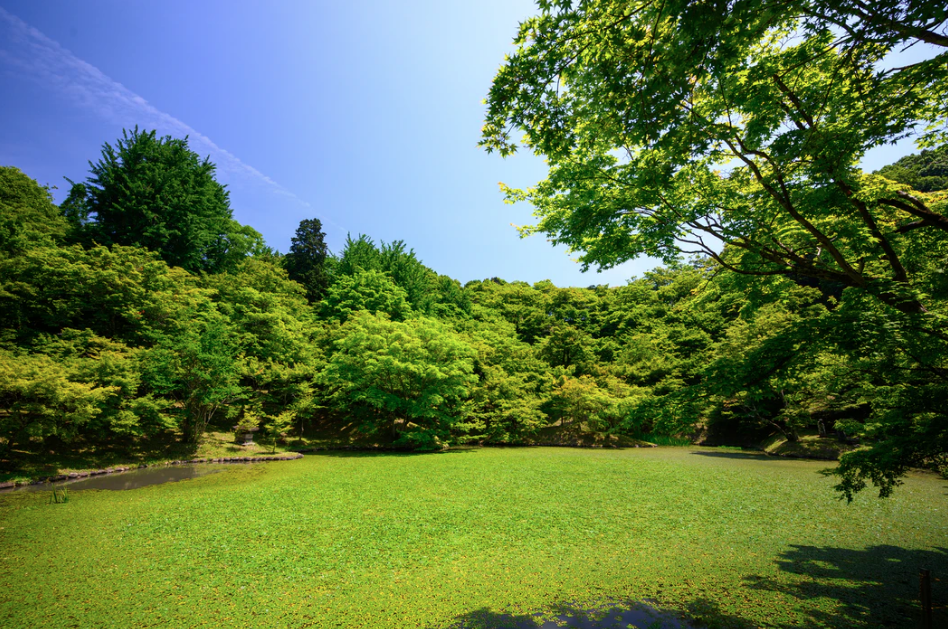How to Maintain Your Lawn in an Environmentally Friendly Way

Looking after your lawn is essential if you want to have an attractive, green lawn carpeting your yard rather than a brown, patchy mess!

In dry climates like Arizona, where water conservation is increasingly important, many homeowners are exploring alternatives to traditional lawns. Companies such as RM Artificial Grass Phoenix have seen growing interest in low-maintenance, eco-friendly turf solutions that reduce environmental impact without sacrificing curb appeal.
This takes a lot of effort, and there are many tools and products available to make this easier, but many of these options come with dire environmental effects. Lawns are increasingly understood as an environmental issue on every level, so working to mitigate the environmental impact of your lawn is an essential part of lawn care in the modern world. Let us take a quick look at how to reduce your environmental impact while maintaining a perfect green lawn.
What is the Problem with Lawns?
Lawns have major issues. The largest of these is the lack of biodiversity: a lawn is a large area with pretty much no variety in the plants and insects living there. Technically, most lawns are classified as biodiversity deserts because there are so few creatures living there. That is fixable, though, and we will cover that below.
The other major problem with lawns is their water consumption. The grass is thirsty, and large lawns use a huge amount of water, which is increasingly a problem in states like California, where lawns cause water shortages for surrounding communities.

Fertilization
Commercial fertilizers might make your lawn look great, but they have devastating environmental impacts. Chemicals from fertilizers are washed away into local waterways, where they cause incredibly fast algal growth. The algae use up all the nutrients, and everything else in the water dies. Fish, plants, insects… everything. This leads to waterways in crisis, filled with dead fish.
Fortunately, there are alternatives you can find at bestofmachinery. Most fertilizers focus on adding nitrogen to your lawn, but there are plants that do that all on their own. Simply plant micro clovers among the grass of your lawn, and these will work as a natural fertilizer without any of the issues!
Fortunately, there are alternatives. Most fertilizers focus on adding nitrogen to your lawn, but there are plants that do that all on their own. Simply plant micro clovers among the grass of your lawn, and these will work as a natural fertilizer without any of the issues!

Irrigation
Lawns need water. A lot of water. They are causing major water shortages in states such as California, and this is only getting worse as we come to understand the effects of climate change more. Fortunately, lawns do not need clean drinking water: rainwater is fine. If you set up a rainwater barrel under your gutters, you can collect water to use on your lawn without needing to use the drinking water supplies!
In response to hosepipe restrictions and water shortages, as well as to save money and energy on water usage, many are switching over from traditional lawns to artificial grass alternatives. While there are environmental concerns surrounding modern fake grass solutions, they can often save money in the long run on water usage as they don’t require regular maintenance, and they also remove the need for use of chemicals and pesticides in the garden.
If you’re thinking of switching to an artificial turf in your garden space, you want to make sure that you’re selecting a high-quality, long-lasting range that won’t need to be replaced. UK supplier Grass Warehouse suggest a turf with dense, tightly packed fibres that will bounce back into shape over time, and one that is UV-protected so that it will maintain its colour long-term.
Conclusion
Lawn care does not have to be environmentally disastrous. You just need to put in the time and the energy to look after your lawn with the minimum possible environmental impact. It might not be the easiest option, but it is an important thing to prioritize. Looking after the environment is essential, particularly as the effects of extreme weather events continually get worse and more frequent. If you are going to maintain a large lawn, it is essential that you ensure you look after it responsibly, rather than just dumping pesticides, fertilizers, and drinking water supplies all over it. Social and environmental responsibility is for everyone!






